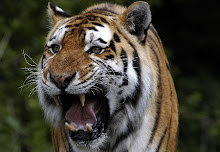
Last 13 June there were presidential elections, after a long and mediatised campaign never seen since the Islamic revolution thirty years ago. The supreme leader Ayatollah Khamenei immediately sanctioned the results, by which the outgoing President Mahmoud Ahmadinejad had been re-elected for a margin wider than 60% of the votes. However, there were several powerful reasons to suspect a well-prepared rigging. Among those:
-Khamenei did not wait for the usual three days before announcing the results. These three days are used to discuss and clear any allegations the candidates may have;
-The geographic distribution of Ahmadinejad’s vote was suspiciously uniform. He even won by a landslide in places widely recognized as other candidate’s most favourable territories;
-The opposition candidates denounced their observers had been barred from the polling stations, and that ballots were missing in many places;
-The elections saw an unprecedented turnout. Such moves happen rarely in favour of the maintenance of the status quo. That would be even stranger in a society were the majority of the population had not been born when the Islamic revolution took place.
Khamenei’s reaction gave rise to huge demonstrations that had not been seen since the days of the revolution. The rest is sadly known. On 19 June, at Friday’s prayer, the supreme leader took another step the delegitimation of the institution he represents, by proclaiming that the demonstrations were illegal, not legitimate, and inspired by foreign powers, and that they would be repressed. This was said when, according to official figures, already ten people had been killed. So Khamenei was essentially giving his green light to a bloodbath, while he mortally injured the institution of
velayat-el-faqih, by which government and parliament are under the guidance of the religious authority. Khamenei openly associated himself with a clear breach in democracy and with the crackdown on popular revolt.
This move only intensified what the regime had been doing for decades: iron-fist repression inside the country, impeding any demonstration with tear gases, acidic water, batons and live shots, with total freedom of action for the
basiji, the youth militia akin for instance to Mugabe’s thugs that terrorized Zimbabwe a year ago –and who continue doing so whenever it is expedient to the regime-; massive arrests. All these combined with intoxication outside the country, accusing everyone of interfering with Iran’s affairs while restricting any access to information, cutting off Internet, expelling journalists or restricting their movements to prevent them from verifying any information they receive, or even attacking the premises of an opposition newspaper and arresting everyone under the accusation of terrorism. Up until now, the only source of information was the people themselves, using the new information technologies.
So far the regime acknowledged some twenty dead people –while some estimates affirm that the real figure could be tenfold-; there have been almost two hundred arrests amongst dissident intellectuals and civil society figures; any attempt to demonstrate continues to be fiercely repressed. The opposition leader did not surrender and denounces his movements have been restricted. At this point the fact that Mr. Moussavi comes from the same regime where he was once the prime Minister became irrelevant. The intestine fight for power has been totally exceeded by the popular movement. Equally irrelevant as the ignominy of the vote recounting, which acknowledged irregularities in 50 districts out of 170; and that there were three million more votes than there were electors. The regime added that, all in all, this last detail does not affect the final result.
What matters is that the regime is tainted with its own people’s blood. There has been an earthquake which will have deep consequences. Iran is seeing its civil rights movement, symbol of the emergence of a new middle class and of the evolution of customs. The regime’s crackdown was for everyone to see. This will not end here.
Some say that solidarity is the tenderness of peoples. Raising my voice for a true democracy in Iran is for me a duty of global citizenship. A citizenship I had the chance to progressively enrich with affective bonds all over the world. These allow me to get first hand information, but also to share impressions, feelings and an outlook. There is also the certainty that anyone who was never deprived of liberty can rarely have a clear conscience of all that it entails. In my case I was lucky enough to grow up in a country that was just liberating itself, but my parents did transmit me the experience of living under a dictatorship. All the aspirations limited by fear; but also the rediscovery of dignity. This goes also to them.
 Military coups became increasingly unusual owing to the worldwide expansion of democracy during the nineties. The military were progressively separated from politics, out of the relative but yet existent expansion and improvement of democratic institutions, and the possibility for ruling classes to maintain social control without resort to violence. Such process was particularly visible in Latin America. The continent just went through two decades that were convulsed by regime changes from Ecuador to Argentina, yet in general the military did not interfere in political processes, at least publicly and using arms.
Military coups became increasingly unusual owing to the worldwide expansion of democracy during the nineties. The military were progressively separated from politics, out of the relative but yet existent expansion and improvement of democratic institutions, and the possibility for ruling classes to maintain social control without resort to violence. Such process was particularly visible in Latin America. The continent just went through two decades that were convulsed by regime changes from Ecuador to Argentina, yet in general the military did not interfere in political processes, at least publicly and using arms.



